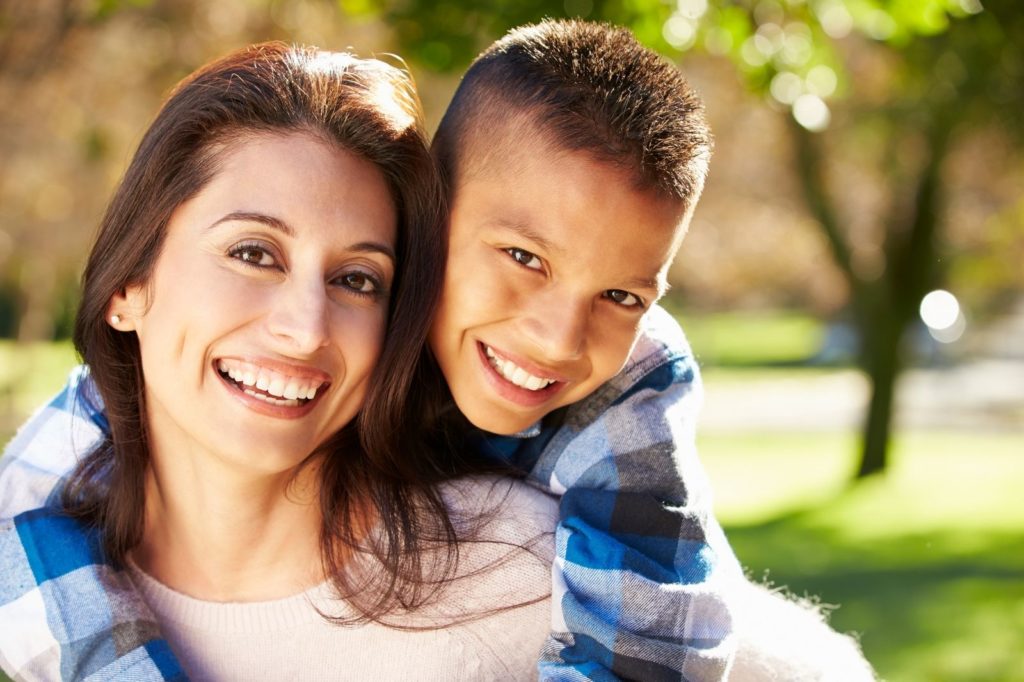In November 2010, I celebrated my first Thanksgiving as a full time single parent of a very special boy who had an un-diagnosed serious mental illness. Eric was barely eleven, but he had already been hospitalized and incarcerated for behavioral symptoms of his brain differences. Before that Thanksgiving, Eric’s father and I had shared joint custody, but a juvenile court judge had decided that Eric should stay with me full time while we worked to find a treatment that would help my sweet son to manage his increasingly unstable moods. I knew I should be grateful—but instead, I felt tired, afraid, and alone.
This November, it’s still not easy for me to write about gratitude. The holiday season can be hard on even the healthiest, happiest families. Cultural expectations of constant joy, accompanied by the relentlessly cheerful holiday soundtracks that blare everywhere we go, from the workplace to the supermarket to our Alexa playlists, can wear down even the most “glass half full” kind of person.
I guess I am grateful that I am generally a “half glass full” kind of person. But for those many lonely, exhausting years when my child was desperately ill, I struggled to feel grateful for anything as I drove from one specialist to another, stopping by his probation officer’s so I could beg for permission to take my child to a family gathering out of state. It was hard to see how gratitude fit my family’s situation. What did we have to be thankful for?
It turns out that counting our blessings in the midst of difficult experiences is a radical act of self-care. In my family’s valley of shadows, I came across some positive psychology research almost by chance, as part of research I was conducting about student retention at community colleges. The gratitude tools I learned have become part of my everyday coping strategies, but they are especially important to me during the holidays.
Numerous studies have looked at the correlation between gratitude and subjective well-being, or how good we feel about ourselves. Psychologist Martin Seligman, whose career has focused on what he calls “authentic happiness,” classifies gratitude as one of 24 character strengths, describing it as a transcendent virtue. Seligman defines gratitude as something that gives our lives meaning and connection as we are “aware of and thankful for the good things that happen.”[i]
In more than 40 countries Seligman and his colleagues surveyed, they found that gratitude was a highly desired character trait across cultures. Similarly, a 2018 large-scale study of Dutch-speaking adults found a positive correlation between feelings of gratitude and prospective subjective well-being, even in people who live with diagnosed mental illness.[ii] The authors observed that “gratitude may lead to enhanced well-being through more adaptive coping, resulting in lower levels of stress.”
The Dutch researchers noted positive results with two types of gratitude exercises Seligman and his team introduced in their 2005 positive psychology research. Both of these exercises are part of my family’s routine and are especially important to me as I cope with the added stress of the holiday season.
The first is the “three good things” exercise. It’s simple to incorporate this quick exercise into even the most hectic schedule. Every night before I go to bed, I jot down three things that went well that day and briefly explain why I think they went well. Some days, this list might be as basic as noting that I managed to wear matching socks, didn’t lose my car keys, and fed my children a rotisserie chicken instead of fast food. But the exercise inevitably focuses me on the positive things in my life. In the 2018 Dutch study, researchers found that people who practiced this simple daily journaling routine for just one week experienced decreased symptoms of depression for six months afterwards.
The second way I practice gratitude is by writing thank-you notes. I keep a running list of people who have helped me, and once a week, I write a brief note to one of them expressing my gratitude. Taking the time and space to acknowledge the kindness of others helps me to calm down and breathe through the stress of my week, and it reminds me that I am not alone—I truly am fortunate to belong to a caring community. The Dutch researchers found that another version of this activity, the gratitude visit, where people delivered their thank-you note in person, caused subjective happiness levels to rise for one month.
This year, as I drove five hours through pine forests and rolling winter wheat fields to pick up my son at college for Thanksgiving break, I was reminded again of how grateful I am for Eric and all that he has taught me as he has learned to manage his bipolar disorder. On the drive home, I asked Eric what gratitude meant to him.
“I’m grateful to even be alive, and this gratitude means that I won’t take life for granted,” he told me. “Gratitude helps me to manage my mental health by forcing me to focus on what’s good, and not on what’s wrong.”
Like Eric, I am grateful for my friends, my family, and my supports. Without them, my own mental health would suffer. I know firsthand that counting our blessings, even the small ones, provides comfort in the valley of shadows and beyond.
[i] Seligman, M. E., Steen, T. A., Park, N., & Peterson, C. (2005). Positive psychology progress: empirical validation of interventions. American psychologist, 60(5), 410. Retrieved from https://howtobehappy.guru/Positive-Psychology-Progress.pdf
[ii] Jans-Beken, L., Lataster, J., Peels, D., Lechner, L., & Jacobs, N. (2018). Gratitude, psychopathology and subjective well-being: results from a 7.5-month prospective general population study. Journal of Happiness Studies, 19(6), 1673-1689. Retrieved from https://link.springer.com/article/10.1007/s10902-017-9893-7










